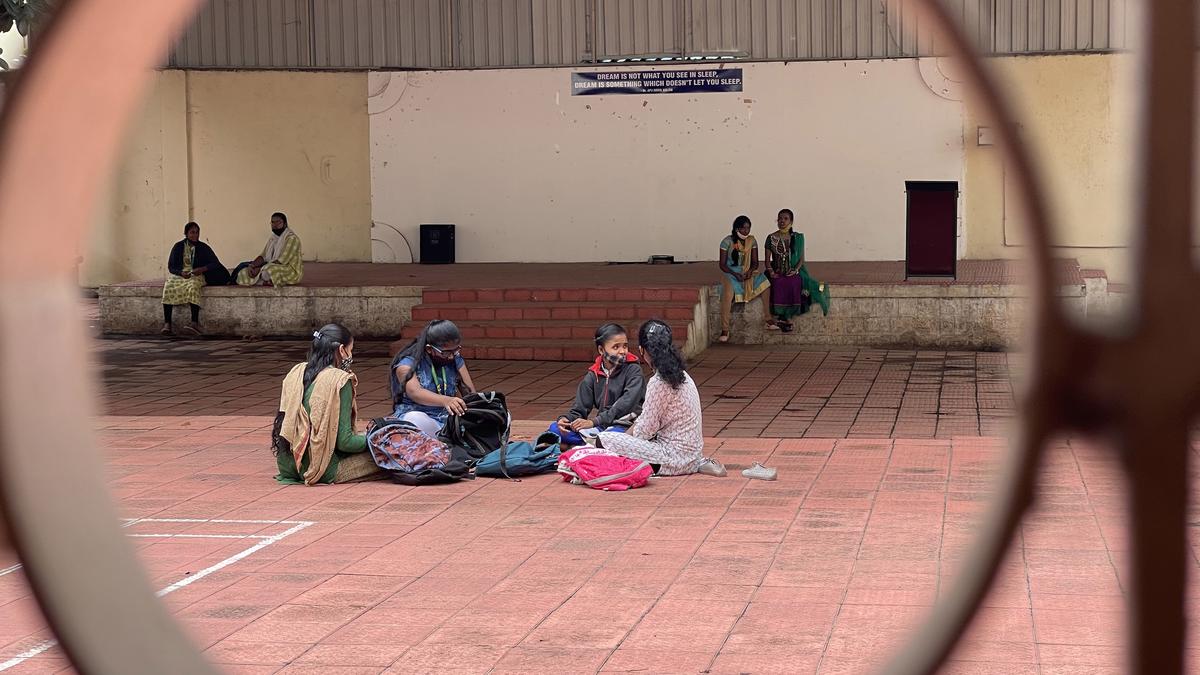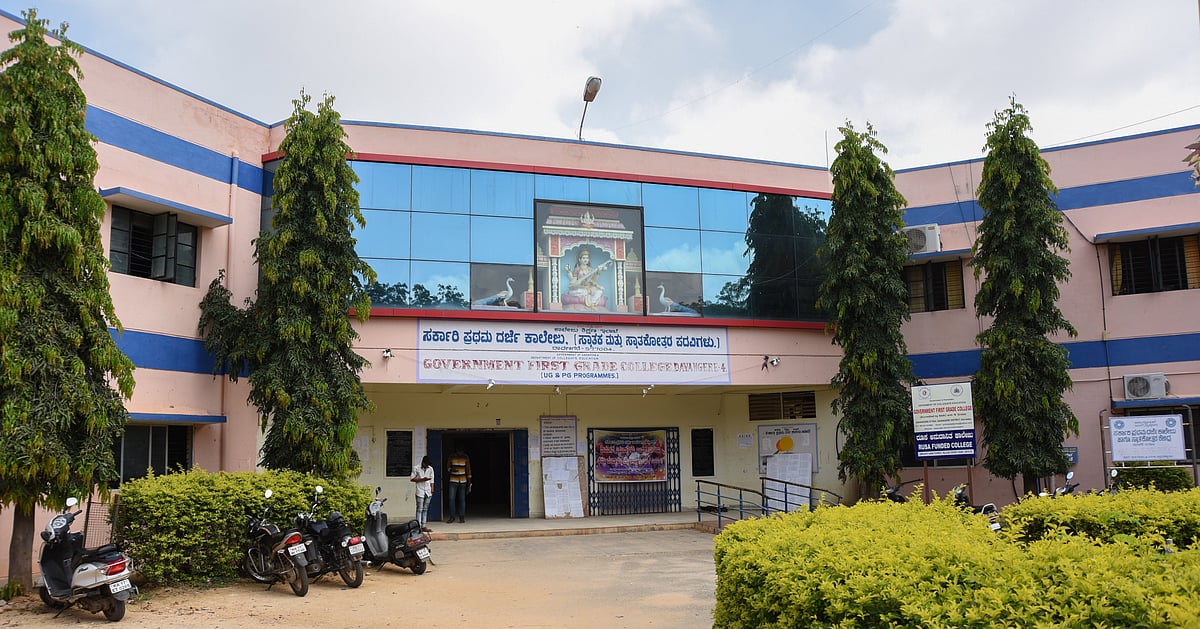The absence of guest faculty in government degree colleges across Karnataka has led to an academic standstill, disrupting classes for nearly a month and sparking widespread frustration among students. For many, this delay has meant uncertainty about course completion, exam preparation, and overall academic progress. Reports suggest that over 30 colleges have been directly affected, with thousands of students left without regular classes. The situation has triggered growing anger among students, parents, and academic circles, who fear that the lack of timely intervention may have long-term effects on higher education in the state.
The delay in appointing guest lecturers stems from administrative and financial bottlenecks, according to officials. The Karnataka government had previously promised to streamline the recruitment of guest faculty, yet the process remains stalled due to pending clearances and procedural delays. This has left existing permanent faculty overwhelmed, as they are forced to handle multiple subjects and workloads beyond capacity. Students pursuing specialized subjects like science, commerce, and arts are particularly disadvantaged, as many courses rely heavily on guest faculty expertise. Without regular teaching, several institutions are facing complaints of declining academic quality and low morale among learners.
The frustration among students has also begun to manifest in protests and appeals to local authorities. Student unions and associations are voicing their grievances, demanding immediate government intervention. Some have threatened statewide protests if appointments are not made quickly. Faculty members, too, have expressed concerns about the declining learning environment, warning that students’ academic growth and employability could be jeopardized. With exams around the corner, the pressure to resolve the issue has mounted significantly, making this a pressing concern for Karnataka’s education system.
The crisis in government degree colleges is particularly concerning for rural students, who often do not have the option of shifting to private institutions. Many of these students rely on government colleges as their only affordable means to pursue higher education. Without teachers, their learning has come to a standstill, leaving them frustrated and uncertain about the future. Rural colleges face even greater difficulties, as travel to nearby towns for coaching or classes is not practical for most students due to financial and logistical constraints.
Several student organizations have already staged protests outside district offices, demanding immediate appointments of guest faculty. In some cases, students have even boycotted classes as a symbolic protest against the government’s negligence. These demonstrations highlight the urgency of the issue and the mounting anger among Karnataka’s youth. Leaders of these protests argue that while the government invests heavily in new educational infrastructure, it is failing to address the fundamental problem of staffing. This contradiction has only added to student resentment.

Permanent faculty members, though present, are unable to manage the massive workload without the support of guest lecturers. Many report being forced to handle subjects outside their expertise, leading to compromised teaching standards. Overburdened staff are also unable to give students the individual attention and mentoring they require. This imbalance has created a stressful academic environment, leaving both teachers and students dissatisfied. Critics argue that the government’s indecisiveness has effectively paralyzed the functioning of many colleges.
The academic calendar is under severe threat due to the month-long delay in classes. Students worry that missed lessons may be rushed through later in the semester, reducing the depth of learning. Some institutions have attempted to conduct bridge courses and online sessions as temporary solutions, but these have not proven effective in maintaining academic quality. Many students, especially those from underprivileged backgrounds, lack access to digital resources, widening the gap between those who can afford alternatives and those who cannot.
The psychological toll of this uncertainty is also visible. Students are reporting heightened levels of stress and anxiety about falling behind in their courses. Those preparing for postgraduate entrance exams feel particularly disadvantaged, as gaps in their undergraduate learning may affect their competitive performance. Faculty members have expressed concern that the academic disruptions could result in higher dropout rates, particularly among rural and economically weaker students, who may not see continuing education as worthwhile under current conditions.
Political leaders have begun to weigh in on the issue, with opposition parties criticizing the government for failing to protect the interests of students. They argue that education should be considered a non-negotiable priority, and lapses such as these reflect poorly on the administration’s commitment. The ruling government, however, has attributed the delay to bureaucratic hurdles and has promised speedy resolution. This back-and-forth between parties has turned the issue into a political debate, further delaying concrete action.
Education activists insist that the crisis exposes the state’s overreliance on temporary faculty. They highlight that nearly 60 percent of teaching posts in government colleges are filled by guest lecturers, making the system highly vulnerable to disruptions. While guest faculty have played an essential role, activists argue that long-term reforms are necessary, including permanent recruitment drives and regularized pay structures for lecturers. Without systemic change, they warn, such disruptions are likely to continue in the future.
Student Struggles and Institutional Impact
Students across several districts, including Bengaluru, Mysuru, Dharwad, and Kalaburagi, are reporting serious academic setbacks due to the absence of guest faculty. Subjects that require in-depth explanation, laboratory guidance, and consistent mentoring have been hit the hardest. Many final-year students, in particular, worry about their ability to perform well in competitive exams and job placements without proper academic support. Parents have also joined the debate, accusing the government of neglecting the future of students from lower and middle-income backgrounds who largely rely on government colleges.
The impact on institutions is equally alarming. Principals of affected colleges report difficulties in maintaining timetables, as permanent faculty cannot cover all subjects adequately. Some colleges have resorted to adjusting schedules to manage gaps, but this has only added confusion and stress for students. Administrative staff members have also expressed their helplessness, stating that they lack the authority to hire temporary staff without official sanction. The delay has further raised questions about governance, planning, and accountability in Karnataka’s higher education department.
Call for Urgent Government Intervention
Educationists and experts argue that the government must prioritize guest faculty appointments immediately to restore normalcy in colleges. They emphasize that guest lecturers are not merely supplementary staff but play a vital role in sustaining the academic framework of government institutions. Several education activists have demanded the creation of a transparent and timely hiring mechanism to avoid such disruptions in the future. Many suggest that permanent recruitment drives should be accelerated, but until then, guest faculty remain essential to the system.
The pressure is now on the state’s higher education department to take swift action. With student protests escalating and public discontent rising, the government risks eroding trust if it fails to resolve the crisis promptly. Education is seen as a cornerstone of Karnataka’s progress, and lapses in academic continuity could have long-term implications for the state’s youth and workforce development. Unless urgent steps are taken, the crisis may not only damage this academic year but also cast a shadow over the credibility of government education in Karnataka.

Parents, too, have started voicing their dissatisfaction. Many families, especially those from middle-class and working-class backgrounds, feel betrayed by the state’s inability to provide stable education. Some are considering shifting their children to private colleges, but the high costs involved make this option unfeasible for many. This situation has highlighted the stark inequality between private and public institutions in Karnataka, with government college students bearing the brunt of administrative inefficiency.
Experts also caution that prolonged disruption in degree colleges may have ripple effects on the state’s employment sector. Graduates from these institutions form a large portion of the workforce in Karnataka’s industries, public services, and academic fields. Any delay in academic schedules could lead to gaps in workforce readiness, affecting not just students but also the larger economy. Employers may also find themselves hiring graduates who lack adequate preparation due to rushed or incomplete curricula.
As the situation drags on, the pressure on the Karnataka government continues to mount. Students, parents, faculty, and education activists are all demanding immediate steps to resolve the crisis. Failure to act swiftly could result in larger, more coordinated protests across the state, forcing the administration to face not just academic consequences but also political backlash. The resolution of this crisis is now seen as a test of the government’s commitment to safeguarding higher education and protecting the future of thousands of students.
Follow: Karnataka Government
Also read: Home | Channel 6 Network – Latest News, Breaking Updates: Politics, Business, Tech & More

